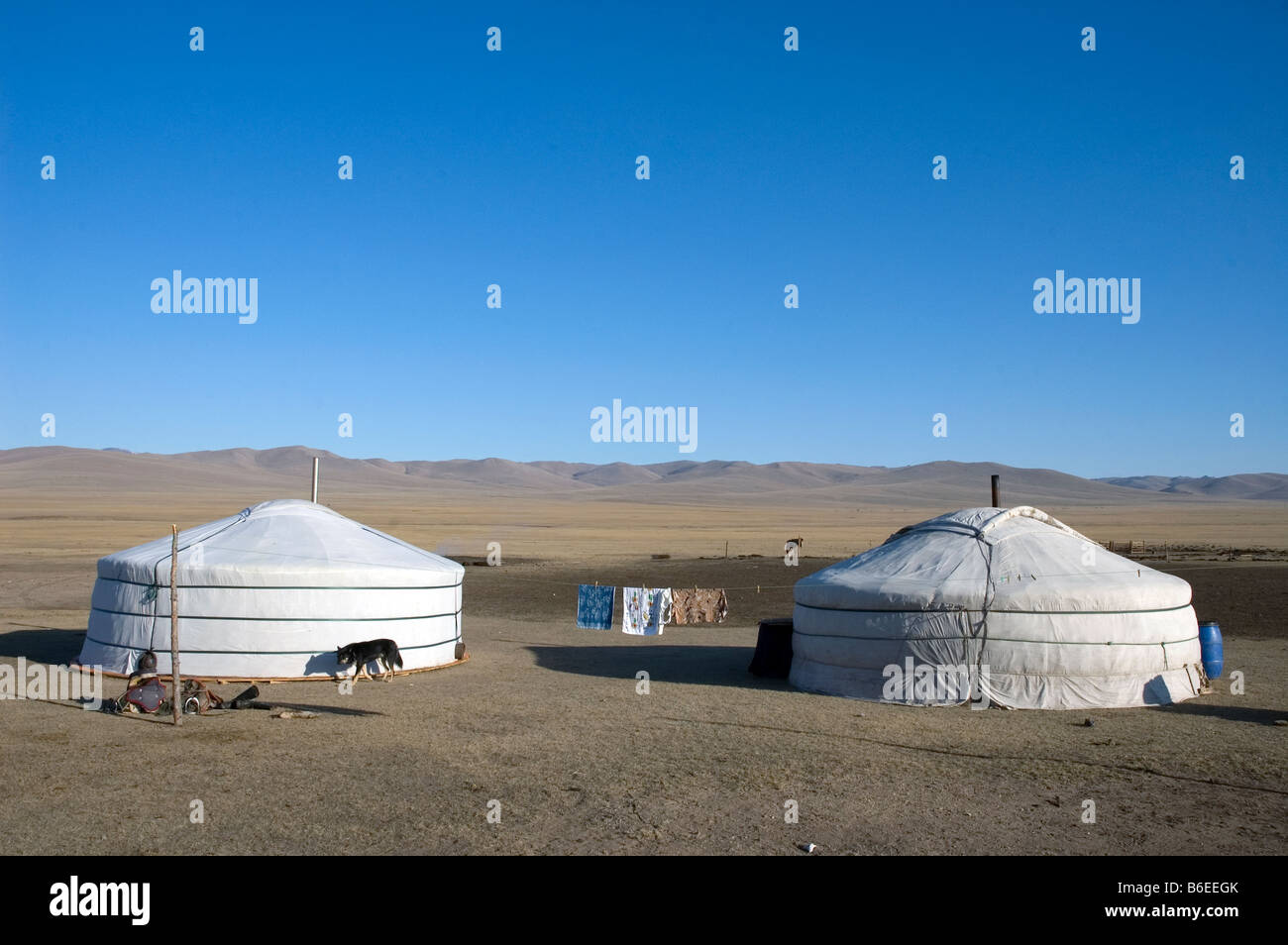Mongolia. Life on the Steppes. Traditional Ger houses. 2007

Image details
Contributor:
BDR / Alamy Stock PhotoImage ID:
B6EEGKFile size:
49.7 MB (1.7 MB Compressed download)Releases:
Model - no | Property - noDo I need a release?Dimensions:
5114 x 3400 px | 43.3 x 28.8 cm | 17 x 11.3 inches | 300dpiDate taken:
2007More information:
At 1, 564, 116 square kilometres, Mongolia is the nineteenth largest and most sparsely populated independent country in the world, with a population of around 2.9 million people. It is also the world's second-largest landlocked country after Kazakhstan. The country contains very little arable land, as much of its area is covered by steppes, with mountains to the north and west and the Gobi Desert to the south. Approximately 30% of the country's 2.9 million people are nomadic or semi-nomadic. The predominant religion in Mongolia is Tibetan Buddhism, and the majority of the state's citizens are of the Mongol ethnicity, though Kazakhs, Tuvans and other minorities also live in the country, especially in the west. The geography of Mongolia is varied with the Gobi Desert to the south and with cold and mountainous regions to the north and west. Much of Mongolia consists of steppes. The highest point in Mongolia is the Khüiten Peak in the Tavan bogd massif in the far west at 4, 374 m (14, 350 ft). The basin of the lake Uvs Nuur, shared with Tuva Republic in Russia, is a natural World Heritage Site. Most of the country is hot in the summer and extremely cold in the winter, with January averages dropping as low as -30°C (-22°F).[14] The country is also subject to occasional harsh climatic conditions known as zud. Ulan Bator has the lowest average temperature of any national capital in the world. Mongolia is high, cold, and windy. It has an extreme continental climate with long, cold winters and short summers, during which most of its annual precipitation falls. The country averages 257 cloudless days a year, and it is usually at the center of a region of high atmospheric pressure. Precipitation is highest in the north (average of 20 to 35 centimeters per year) and lowest in the south, which receives 10 to 20 centimeters annually. The extreme south is the Gobi, some regions of which receive no precipitation at all in most years.